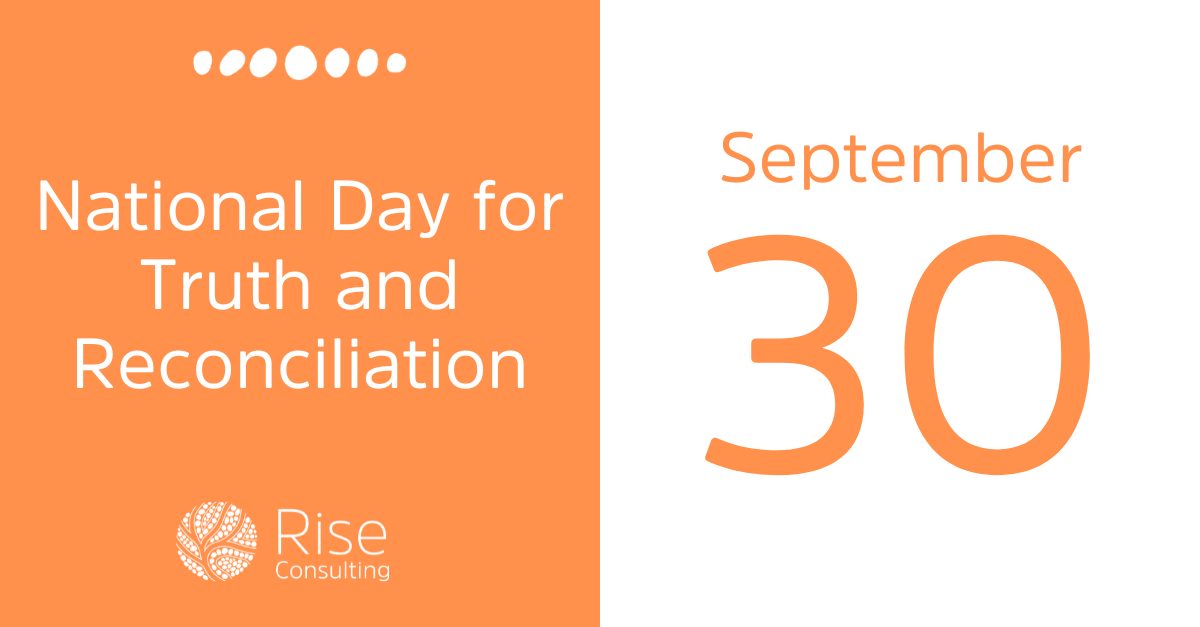
Throughout the month of September and in particular, on Saturday, September 30, we commemorate the National Day for Truth and Reconciliation, an occasion dedicated to raising awareness among Canadians about the legacy of Residential Schools. This day holds the purpose of both educating and reminding us about this history, paying tribute to the victims and their families and celebrating the resilience of survivors. Moreover, it serves as a tribute to Call to Action #80 from the Truth and Reconciliation Commission. As of 2021, this day has been recognized as a federal statutory holiday for all federal employees and those working in federally regulated workplaces. Additionally, numerous other organizations also choose to observe and acknowledge the significance of this day, including our team at Rise.
Call to Action #80 – We call upon the federal government, in collaboration with Aboriginal peoples, to establish, as a statutory holiday, a National Day for Truth and Reconciliation to honour Survivors, their families, and communities, and ensure that public commemoration of the history and legacy of residential schools remains a vital component of the Reconciliation process.
Since 2013, September 30 has been observed as Orange Shirt Day when this movement was created to recognize the colonial legacy of Residential Schools and to commit to the ongoing process of Reconciliation. Orange Shirt Day recalls the experience of Residential School survivor Phyllis Webstad, who attended the St. Joseph’s Mission Residential School in 1973 where her orange shirt was taken away from her. This day was chosen because it was around the time of year when Indigenous children were removed from their families and forced into Residential schools; upon arriving at the school, most personal belongings were taken away from the children.
National Day for Truth and Reconciliation is an opportunity for us to listen and learn from Indigenous Peoples and Communities, Elders, and Knowledge Keepers on their lived experiences and perspectives. It should be used as a day to honour those impacted by Residential Schools and to learn more about Indigenous cultures and perspectives. We need to listen, learn, reflect and then act as we participate in Reconciliation not just on this day, but every day. September 30, 2021 was the beginning of many days of Truth and Reconciliation. Today is another day and tomorrow is another, and the day after that, and the day after that…
What Can I Do?
As individuals, we all have a role to play in this collective experience of Reconciliation. We can participate in this day by spending time listening, learning and reflecting. This is an opportunity to walk together on our collective pathways toward Reconciliation. As you prepare your intentions for September 30, we want to share some fundamental ways you can listen, learn, reflect and act in Reconciliation and in commemoration of the day.
Listen
Reconciliation is a process of healing relationships that require public truth sharing, apology, and commemoration that acknowledge and redress past harms. This starts with listening to the Truth of the past and current harm that impacts Indigenous Peoples on Turtle Island. Below are resources you can watch or listen to, to learn more:
- Explore a brief history of the Residential school system in a video from the Orange Shirt Society:
- Listen to the 2022 Unreserved podcast episode, Making the Most of NDTR, with Rosanna Deerchild (CBC)
- Watch Bones of Crows (2022: Amazon Prime): Cree code talker Aline Spears survives her traumatic past in Canada’s residential school system to continue her family’s generational fight against systemic starvation, racism and sexual abuse
- Watch A Mother’s Voice by Holly Fortier to learn from a survivor’s experiences in Residential School
- Watch Phyllis Webstad share her experiences of Residential schools in On Orange Shirt Day
- Listen to Our Twisted History ‘School’ podcast to learn more from Indigenous Peoples
- Check out CBS 60 Minutes coverage of Canada’s Unmarked Graves
- Watch Indian Horse (2017: PG: Netflix): a story of an Indigenous boy who finds refuge on the rink as he discovers a passion for hockey after Residential School
- Follow social media accounts like @reconciliationcanada, @cbcindigenous or @gcindigenous
Learn
Educating yourself and taking accountability for building knowledge is an ongoing process. You can seek to understand more about Truth, history and reality. With Truth comes healing and justice. Below are some resources to read and tools to use:
- Read the recently published interim report “Sacred Responsibility: Searching for the Missing Children and Unmarked Burials“.
- Learn about the Survivors’ Flag and what each element depicts
- Explore the National Centre for Truth and Reconciliation and the resources available:
- Read the Truth and Reconciliation Commission’s Calls to Action
- Learn about the importance of your role as an individual, and what allyship means
- Identify where the closest Residential schools were to you: Do you live near a Residential school?
- Read a book by an Indigenous author on the history of colonialism, racism and Residential Schools
- Help the children around you learn and increase their understanding
- Read and use the supplemental learning guide: Spirit Bear, Honouring Memories
- Assembly of First Nations Education Toolkit
- We Are Water Protectors by Carole Lindstrom
- Phyllis’s Orange Shirt by Phyllis Webstad
Reflect
Spend time reflecting to understand your motivations and interests. Apply your learning in a meaningful way. Ask yourself:
- Do I know where I am in my own reconciliation journey? Do I know a little? What questions do I have?
- Do I appreciate where I live and the critical stewardship of Indigenous Peoples on my life today?
- How do I contribute to or challenge systemic inequalities that affect Indigenous communities, both in my personal life and within larger societal structures? Do I engage with Indigenous events, artists, or businesses?
- Have I listened to the stories and experiences of indigenous individuals and communities, and have I made an effort to be curious, kind, and empathize with my neighbours and peers lived experiences?
- How can I use my privilege, platform, or resources to support indigenous-led initiatives, promote cultural preservation, and advocate for policy changes that benefit indigenous communities?
Act
The Calls to Action say that “Canadians must do more than talk about Reconciliation; we must learn how to practice Reconciliation in our everyday lives, within ourselves, our families, communities, governments, places of worship, schools, and workplaces”. This is ongoing work, and we must continue to support and act in meaningful ways. A few ideas for actions you can take include:
- Donate directly to the Orange Shirt Society or the Indian Residential School Survivors Society
- Attend an event:
- https://nctr.ca/news-and-events/nctr-events/
- https://nctr.ca/nouvelles-et-evenements/evenements-du-cnvr/?lang=fr
- https://downiewenjack.ca/events-calendar/
- https://nahaneecreative.com/activatingallyshiplaunchevent
- Purchase a box from Indigenous Box
- Purchase a feather pin from the Every Child Matters Feather Project
Spread the word! One of the easiest and most effective things you can do is raise awareness about National Day for Truth and Reconciliation. #NationalDayforTruthandReconciliation #NDTR #OrangeShirtDay #EveryChildMatters
Purchase an Orange Shirt from an Indigenous Vendor
It is important to ensure that you purchase shirts from organizations that are Indigenous-led or Indigenous-owned, and where the proceeds are given directly to the Orange Shirt Society or another Indigenous charity or non-profit in your community. Here are a few organizations that we’ve found, that you can check out:
- Orange Shirt Day Society
- National Centre for Truth and Reconciliation
- Indspire (through a partnership with Indigenous Artist, Patrick Hunter, and Giant Tiger)
- Indigenous Box
- Native Arts Society
- Native Northwest
- British Columbia: Make
- Alberta: Moonstone Creations
- Saskatchewan: Peble Goods
- Manitoba: Dreamcatcher Promotions
- Ontario: Resist Clothing
- Prince Edward Island: Mi’kMaq Printing
